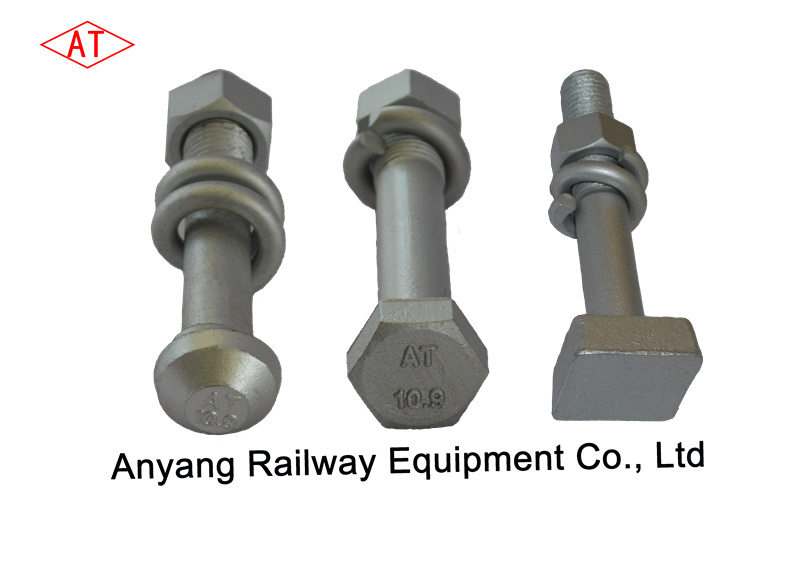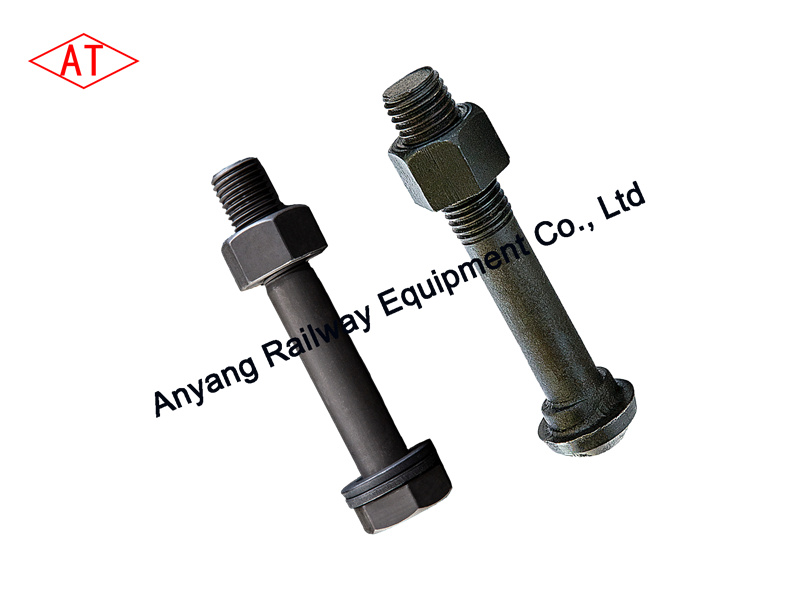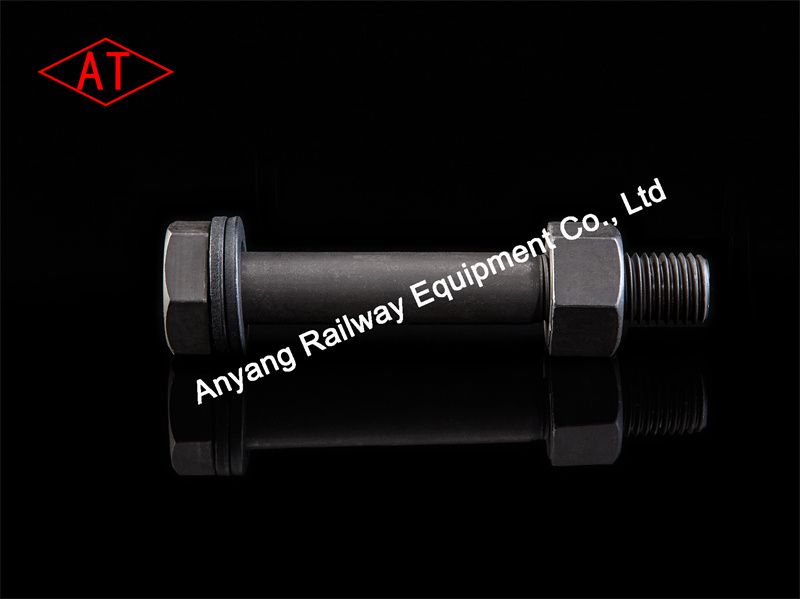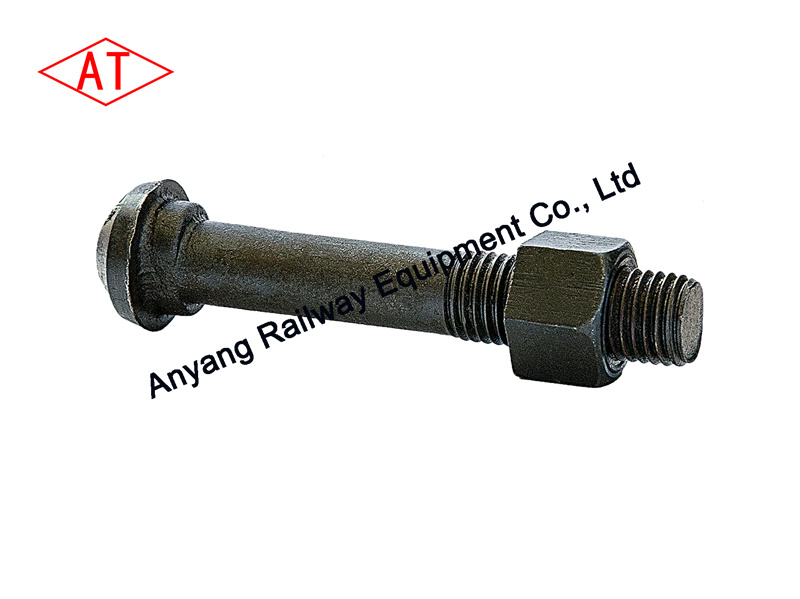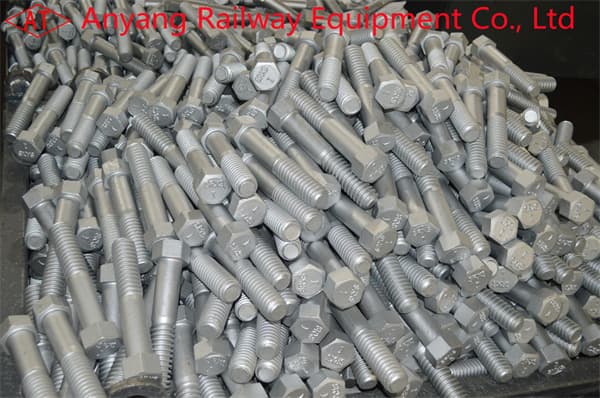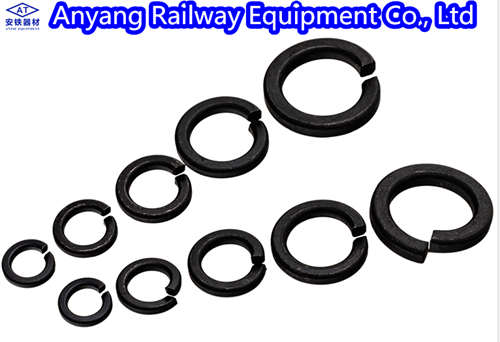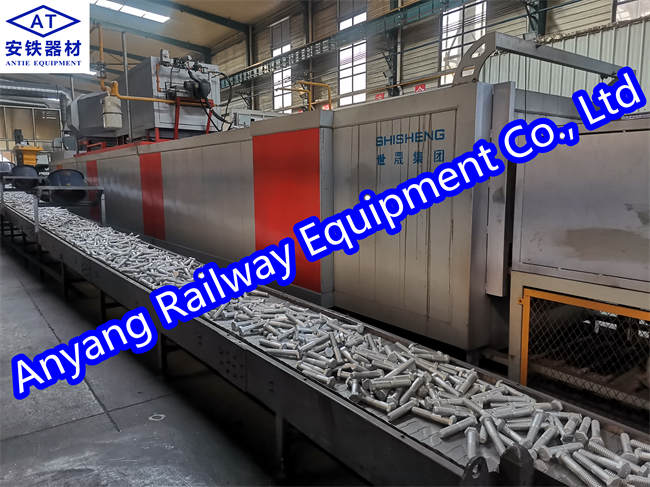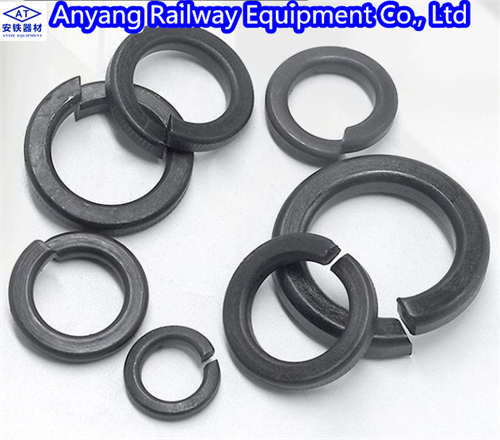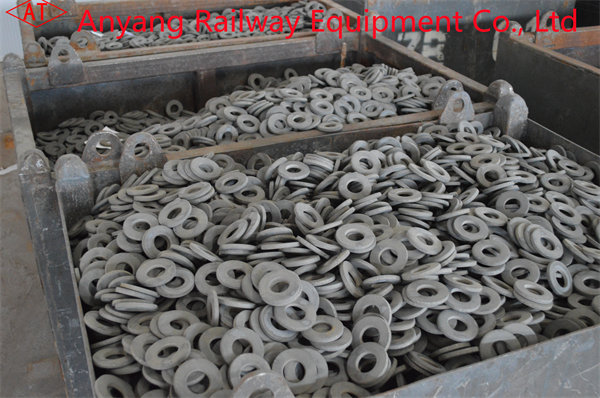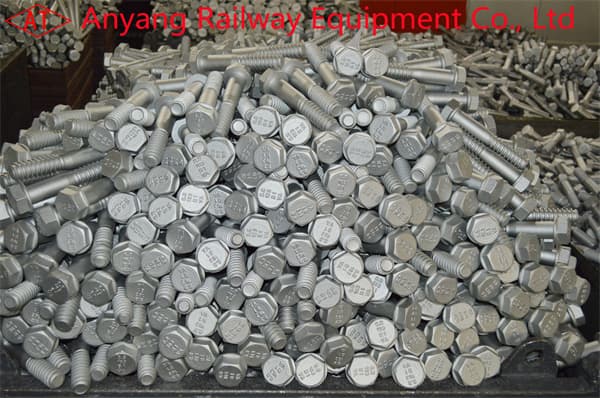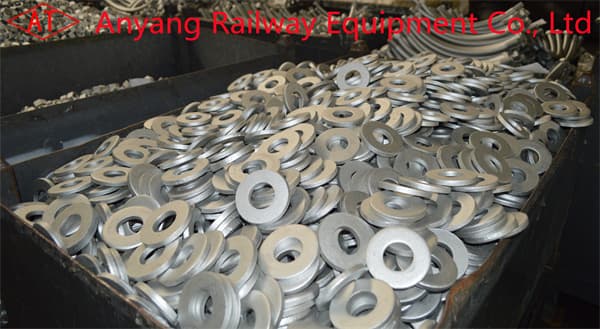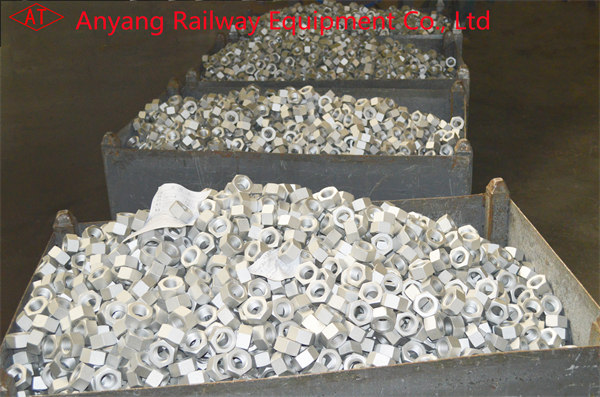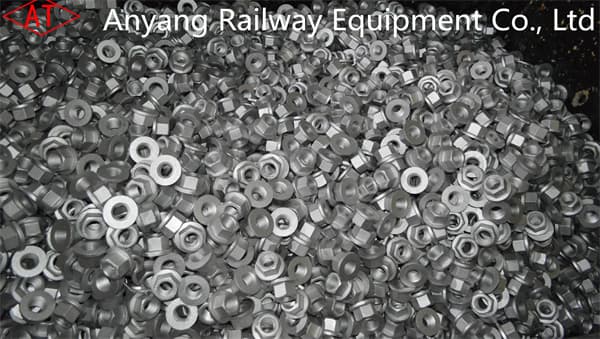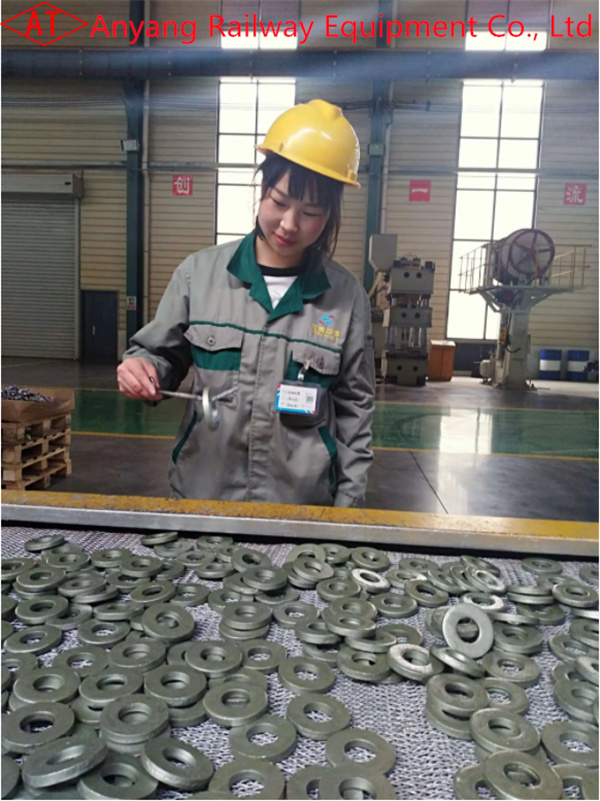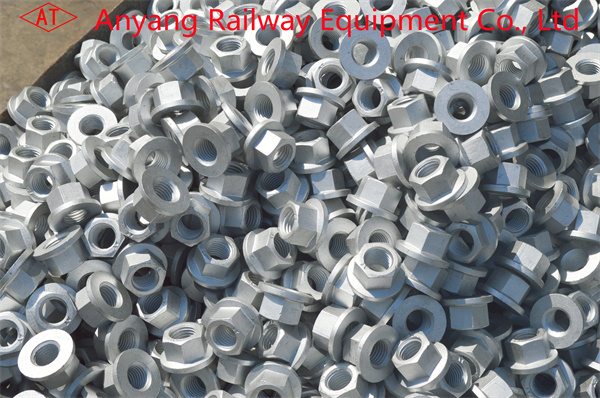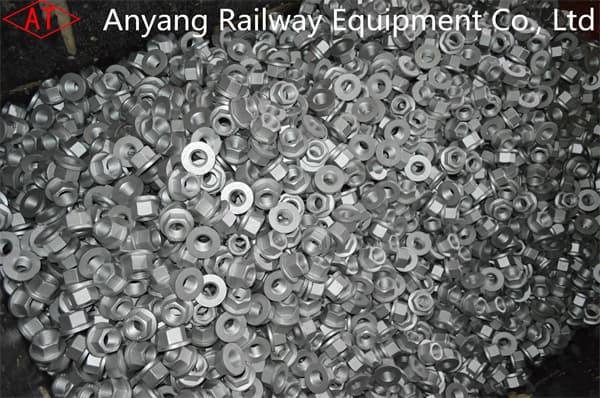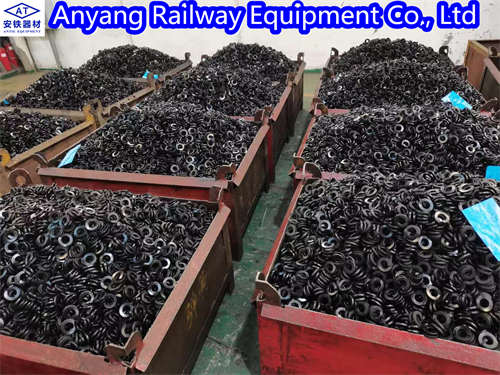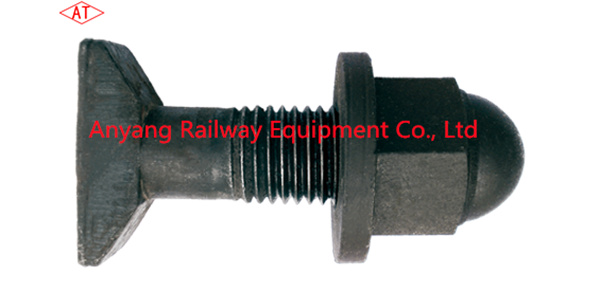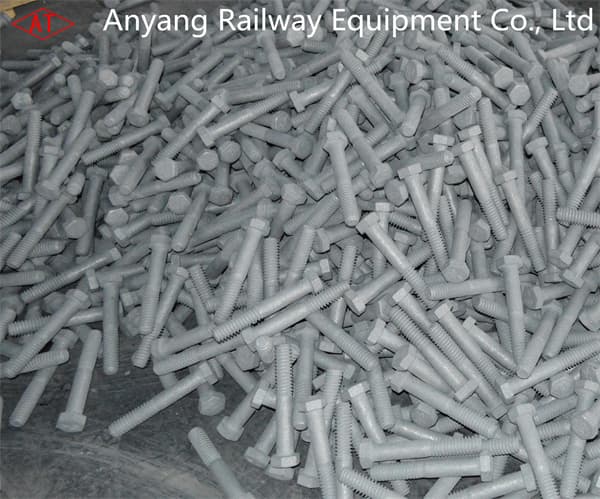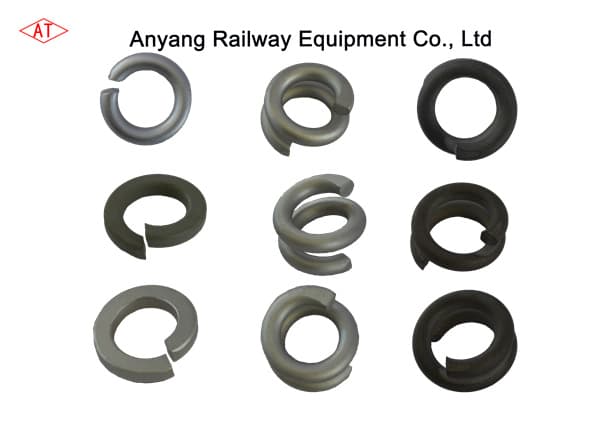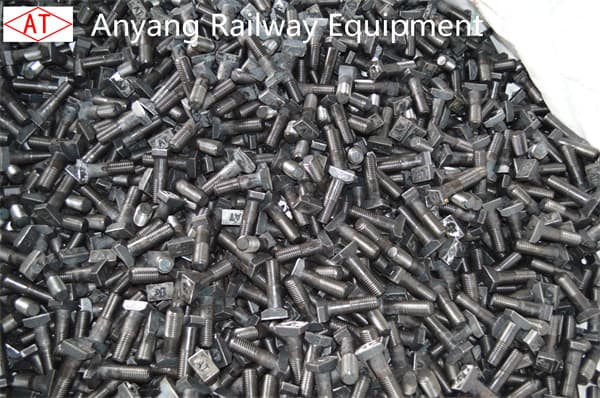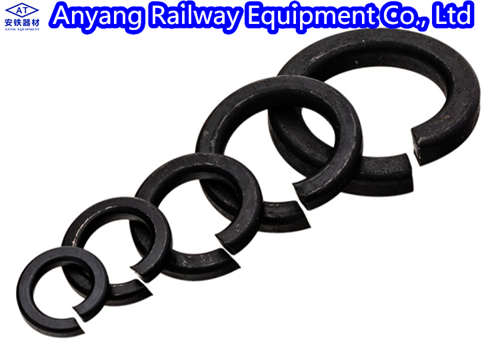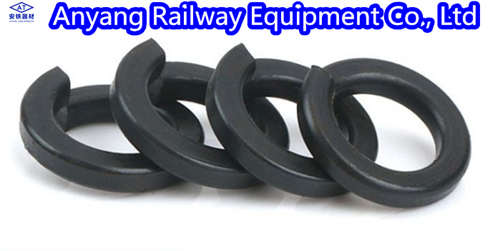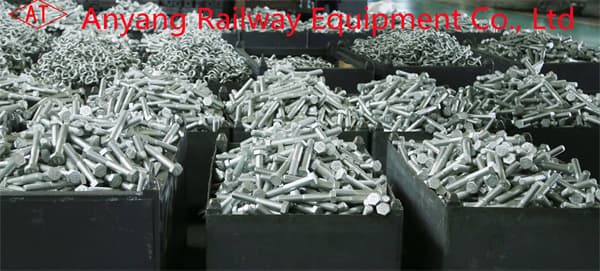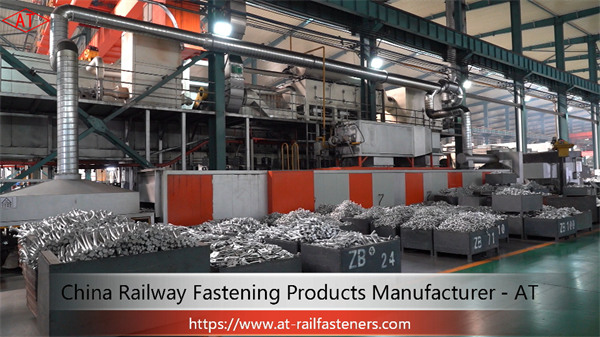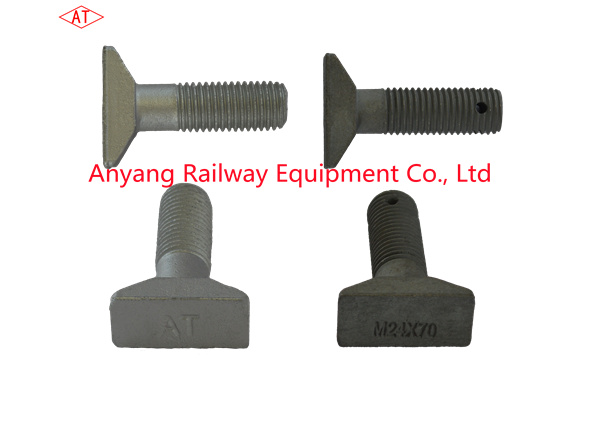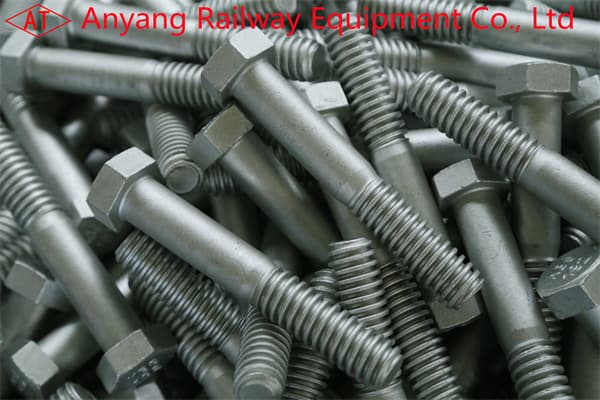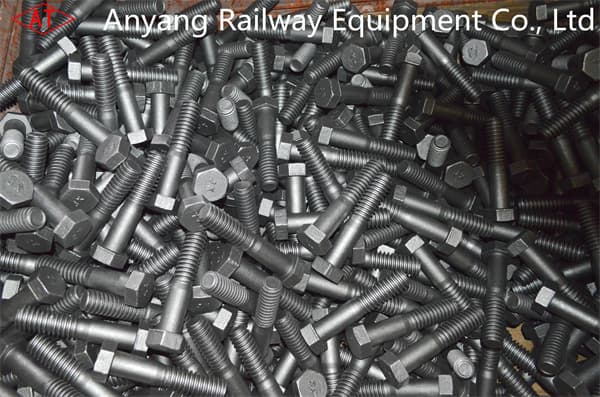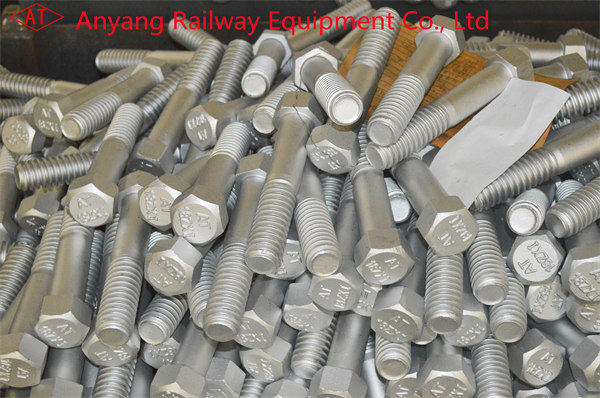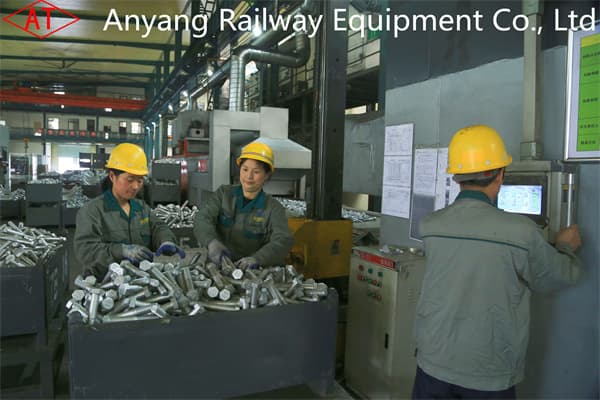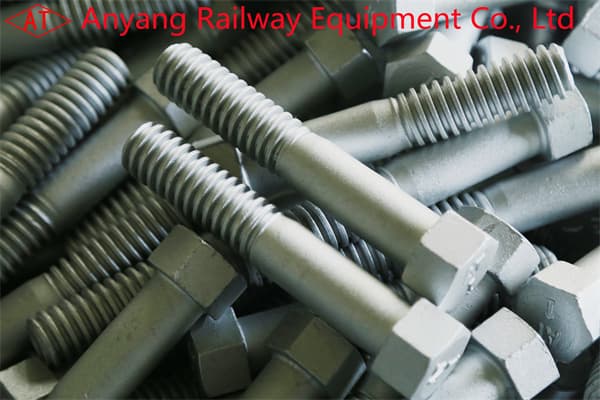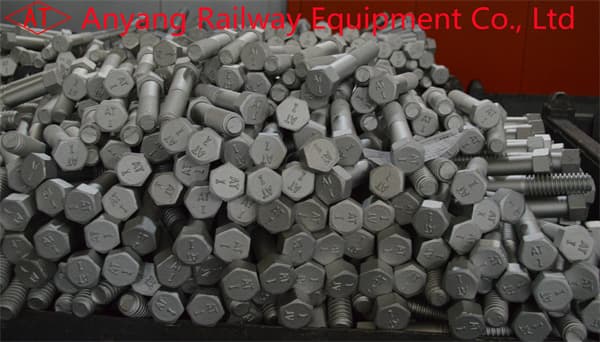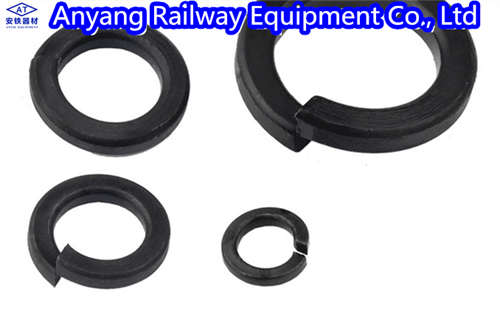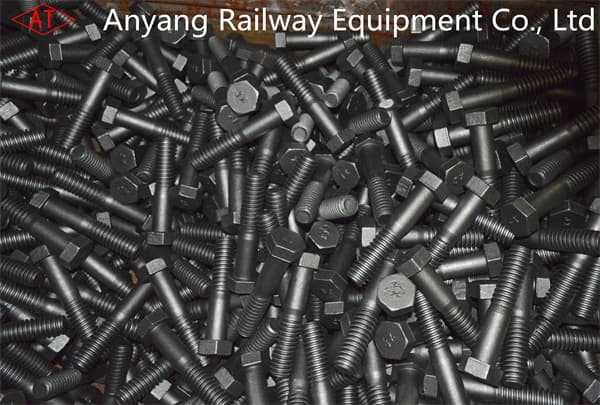Rail Bolts and Nuts in Jointing Track and Fixing Railway Rail
Rail Bolts and Nuts are used for jointing track and fixing Railway Rail, and sometimes hexagonal bolts can be used instead. Rail joint bolts are mainly used in track laying in the metallurgical industry, coking industry, and steel industry.
Railroad Rail Fish Bolt is a necessary fastening part of rail joint bars and rail splint joints. It acts as a fastening at the joint of rail joint splint. Track Joint Bolt is composed of a track joint bolt, nut flat washer, and spring washer. There are two protrusions on the inner side of the bolt end, which are just stuck in the elliptical hole of the joint bar, so there will be no shaft rotation during the tightening process.
The model and material model of Rail joint bolts are Φ14×70, Φ16×75, Φ18×90, Φ20×90, Φ22×135, Φ24×135, Φ24×145, Φ24×170, etc. Rail joint bolts adopt hot pressing or cold heading forming.
The main materials of track fish bolts are Q235 and 45# steel. Bolt performance grades are divided into more than 10 grades such as 3.6, 4.6, 4.8, 5.6, 6.8, 8.8, 9.8, 10.9, 12.9, among which bolts of grade 8.8 and above are made of low-carbon alloy steel or medium-carbon steel and are heat-treated (quenched, tempered), commonly known as high-strength bolts, and the rest are commonly known as ordinary bolts.
The specifications of railroad rail fish bolts are closely related to the specifications of steel rails, such as 24*145 rail fish bolts for 50kg/m steel rails. According to the rail specifications, the track bolt models are Φ14, Φ16, Φ18, Φ20, Φ22, Φ24. Its specifications are determined by market demand and the thickness of the rail joint bar and the connecting plate.

